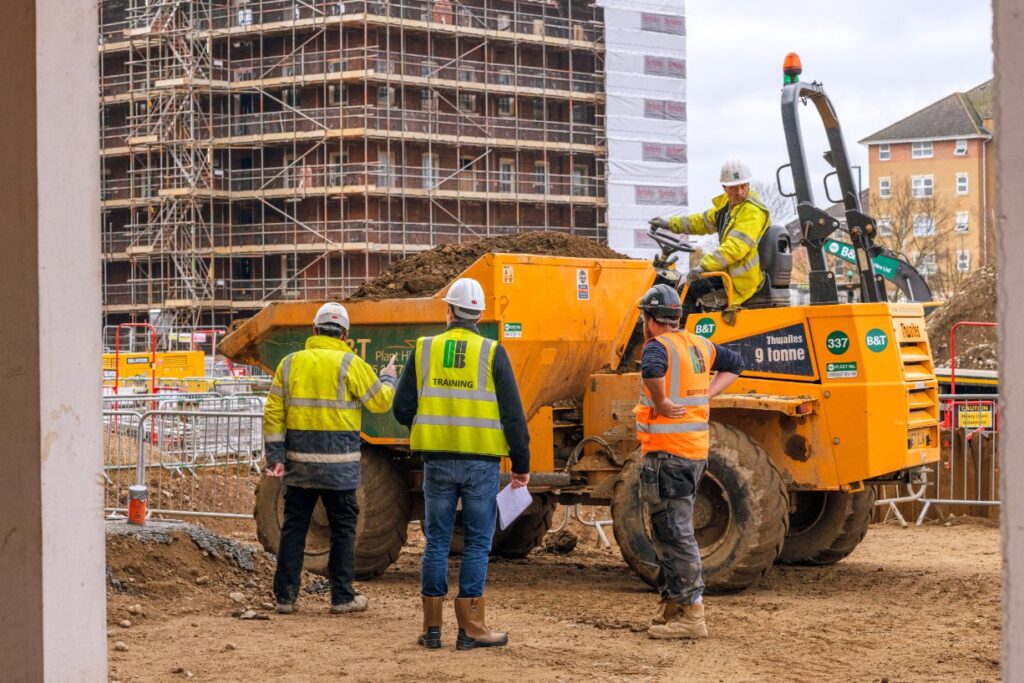The Great British Skills Gap: Vocational trades in need of resuscitation as Brits shun construction industry

With 50% of Brits undertaking renovations since lockdown last year, the demand for tradespeople has witnessed a record high. The Construction Leadership Council (CLC) have recently stated following the high demand for materials and skilled workers, the shortages of materials and tradespeople continues to be an industry-wide issue.
Research by the Office for National Statistics states that the employment rate in the construction sector for the UK fell from 2.3 million in 2017, to 2.1 million at the end of 2020. This demonstrates a 4% decrease in UK-born workers, and a 42% fall in EU workers. In London, employment fell from 311,124 workers in 2017, to 261,271 at the end of 2020, representing a 54% fall in EU workers, which has only led to further difficulties considering the construction industry was relied on heavily during the pandemic.
With such large numbers of EU workers from the UK leaving the industry, this is leaving the construction sector suffering from an employment drought. However, the tide could be turning, with new national research from Powered Now, a field service management software that specialises in trades, has unveiled that 18% of Brits have sought a new career path in the trades as a result of the pandemic. Furthermore, the research has indicated that the pandemic has been a catalyst for diversifying the UK’s trade workforce, with 15% of those considering the trades as a career being female.
Key Statistics
Brits spent £110.3bn on home improvements over the course of the pandemic
37% of Brits experienced tradespeople that they wanted to use being too busy to do the work that they wanted during the pandemic
34% of Brits agreed that hiring a tradesperson was the only service that they used during the lockdowns
18% of Brits agree that after COVID, have found employment within a trade sector to pick up additional work or to commence a new career path
15% of tradespeople have seen their client demand increase post-COVID
17% of tradespeople regularly work over 10 hours a day
16% of tradespeople agree that they lose out on business due to extensive administrative tasks, such as chasing invoices
16% of tradespeople agree that sequential waves of COVID has made them more motivated to work
The UK Skills Drought
The UK construction workforce is an ageing one, with over 20% of tradespeople being over fifty and 15% being in their sixties. The problem was a simple one, as these electricians, builders and plumbers retire, the same percentage of young people were not entering these professions.
Although there are many opportunities in the trade industry, many young people were simply not choosing it as a career. This is despite that 74% of parents in a recent YouGov survey would encourage their child to learn the skilled trades. However only 3% of young people aged between 18-24 have searched for a job in the trade industry. Now however, the tide is turning in favour of the labour market, and Brits are seeking new career paths in the trades at record rates, and for good reason.
Powered Now’s research had further unveiled that 15% of the UK’s skilled trade workforce were experiencing their highest levels of client demand during the pandemic.
Ben Dyer, CEO of Powered Now, has commented on the research and how this revival in business has caused a welcome increase in productivity and growth for the sector.
“With shortages of supplies and labour, the whole industry is still in catch up mode and the various projects that were delayed by sequential lockdowns, are now taking priority. This has helped to spike demand and we expect it to continue in the short term. Our research has entirely confirmed that tradespeople and consumers alike are very much eager to sustain this growth.
“Our SME customers are also talking about the pressure to complete jobs as they don’t have enough boots on the ground. As we have seen from the sentiments established in this research, a new wave of tradespeople are more motivated to work and are commencing their work on home improvements even sooner. These concerns are also sure to help the sector bounce back even quicker as people will rush to hire a tradesperson for their desired work.”




